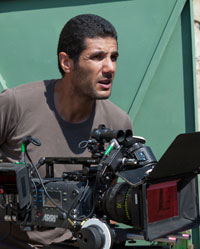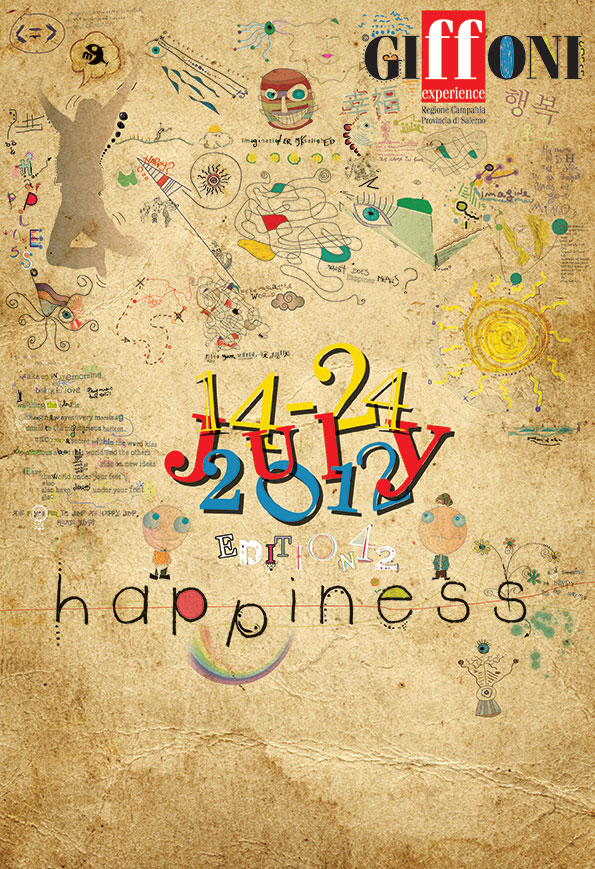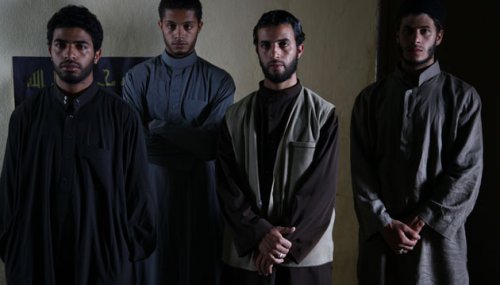 Nabil Ayouch
Nabil Ayouch
Born 1969, Paris. In 1992 he directed his first short film, THE BLUE ROCKS OF THE DESERT (LES PIERRES BLEUES DU DÉSERT). In 1997 he made his debut feature film, MEKTOUB, which was Morocco’s entry at the Academy Award for Best Foreign Language Film, as well as the following feature, ALI ZAOUA (2000), which was also screened at GFF 2001. Next came UNE MINUTE DE SOLEIL EN MOINS (2003) and WHATEVER LOLA WANTS (2007). In 2011 he released his first documentary feature film, MY LAND. HORSES OF GOD was screened at Cannes Film Festival 2012 in the Un Certain Regard section.
Nabil Ayouch
Nato nel 1969 a Parigi. Nel 1992 dirige il suo primo cortometraggio, LES PIERRES BLEUES DU DÉSERT. Nel 1997 esordisce nel lungometraggio con MEKTOUB, che viene scelto come rappresentante del Marocco alle nomination per l’Oscar al miglior film straniero, come il successivo ALI ZAOUA (2000), presentato in concorso al GFF 2001. Seguono i lungometraggi UNE MINUTE DE SOLEIL EN MOINS (2003) e WHATEVER LOLA WANTS (2007). Nel 2009 Ayouch gira il suo primo documentario, MY LAND. HORSES OF GOD è stato presentato a Cannes 2012 nella sezione Un Certain Regard.
Director’s statement
HORSES OF GOD comes from my own personal experience with the shanty town of Sidi Moumen, the neighbourhood of the young kamikazes who committed the Casablanca bombings in 2003. I had already shot a few scenes in the area for my 1999 film ALI ZAOUA. So it was someplace I’d had ample opportunity to explore and I felt perfectly comfortable there. I remembered the people from the quarter being really pacifist and really open. So when the events of 2003 took place, I just didn’t get it. Fourteen kids from Sidi Moumen blowing themselves up. You say “No, it can’t be!”. It was hugely traumatic for Morocco, because people expect this kind of act to be the work of trained terrorists hailing from Afghanistan or Iraq, but not for the perpetrators to be kids who until then had never left their slum. The main characters, the kamikazes, are kids who are not the only ones responsible for their acts, they are victims of them. I wanted to get that across. I needed to start the film like a chronicle and not jump immediately in with a distant historical panorama. What I wanted above all to convey was the everyday life of these kids, their environment, their parents, the lack of paternity, the strong bond between them and all of the micro-traumas of life that make that at some point or another, it all transforms, as they grow up, into desperate, unbearable resentment. Their small stories forge their destiny and turn them into part of history, that of national and global geopolitics.
At first the film bore the title of the novel from which it’s adapted: “The Stars of Sidi Moumen”. But we realized that it could be perceived in a positive light, that some would see a form of glorification in what the kamikazes had committed. Whereas, while I wanted to give a human face to these young men, in no way did I wish to celebrate their deeds. We looked around and found an excerpt from a text on the Jihad at the time of the Prophet: “Fly horses of God and to you the doors of heaven will open”. This phrase was used several times in modern Jihad terminology by Ben Laden and in televised sermons.
Dichiarazioni del regista
HORSES OF GOD deriva dalla mia esperienza personale con la baraccopoli di Sidi Moumen, il quartiere dei giovani kamikaze che hanno commesso gli attentati di Casablanca del 2003. Avevo girato nella zona alcune sequenze del mio film del 1999, ALI ZAOUA. Era un posto che avevo esplorato in lungo e in largo, e in cui mi sentivo pienamente a mio agio. Ricordavo che le persone del quartiere erano di indole pacifista e molto aperta. Così, quando sono accaduti gli eventi del 2003, non ci potevo credere. Quattordici bambini di Sidi Moumen si fanno saltare in aria. Ti viene da dire: No, non può essere. È stato un fatto profondamente traumatico per il Marocco, perché la gente si aspetta che questo tipo di atti siano opera di terroristi addestrati provenienti dall’Afghanistan o dall’Iraq, e non di bambini che fino allora non erano mai usciti dal loro quartiere. I protagonisti, i kamikaze, sono bambini: non sono gli unici responsabili delle loro azioni, ne sono vittime. Volevo far capire questo. Dovevo far cominciare il film come una cronaca, e non saltare immediatamente nella distanza dell’affresco storico. Volevo soprattutto raccontare la vita quotidiana di questi bambini, il loro ambiente, i loro genitori, l’assenza della figura paterna, il forte legame tra loro e tutti i piccoli traumi a causa dei quali, mentre loro crescono, a un certo punto tutto si trasforma in un risentimento disperato e insopportabile. Le loro piccole storie forgiano il loro destino, e li fanno diventare parte della Grande Storia, quella della geopolitica nazionale e globale.
Inizialmente il film doveva avere il titolo del romanzo da cui è tratto, “Le stelle di Sidi Moumen”. Ma ci siamo resi conto che l’espressione poteva essere percepita in una luce positiva, e che qualcuno avrebbe potuto vedervi una sorta di glorificazione di ciò che i kamikaze avevano commesso. Ora, io volevo dare un volto umano a questi ragazzi, ma non volevo certo celebrare le loro azioni. Così abbiamo trovato una citazione da un testo della Jihad al tempo del Profeta: “Volate cavalli di Dio, e le porte del cielo vi saranno aperte”, una frase usata diverse volte nella terminologia moderna della Jihad, da Bin Laden, e nei sermoni televisivi.








 Nabil Ayouch
Nabil Ayouch